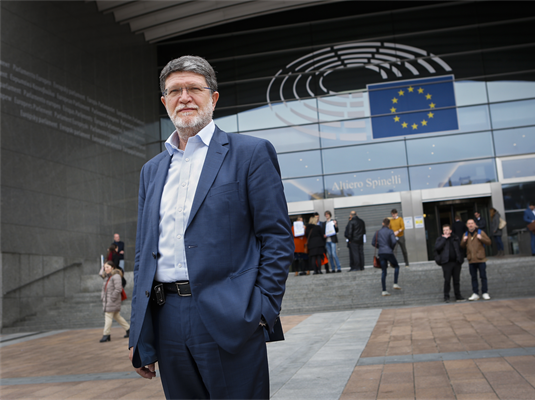- Since Montenegro has approached joining the European Union, what is your role as a rapporteur? What are your tasks?
The role of rapporteur comes with a serious responsibility. My job, as a member of the EP foreign policy committee, is to prepare a report on the country's progress towards European integration. The report is prepared through a detailed analysis of developments in the country, consultations with experts, officials, civil society and other actors, in order to obtain a comprehensive picture and overview of the situation. It should also be emphasized that the report is being prepared with other committee members in the EP through discussions and by proposing amendments. This provides excellent insight but also encourages dialogue. Montenegro has moved farthest in its negotiations with the European Union. Our experience, gained from the fact that we are the last EU Member State, should be transmitted to countries in the region. It is also encouraging that the new Commission High Representative for the Common Foreign and Security Policy is Josep Borrell, who stressed that the new Commission must be geopolitical and that the EU project will certainly not be completed without the Western Balkans.
- Border demarcation with Croatia - will the unresolved border issue of Croatia with Montenegro at Cape Prevlaka affect Croatia's mutual relations as a member of the EU and Montenegro as a prospective EU candidate? Are there any progress in the negotiations or have they been 'dead' so far, as recently there have been incidents in the waters around Cape Prevlaka, which indicates that the situation is still undefined and tense.
In 2002, Croatia and Montenegro signed the Interim Agreement, according to which the mainland part of Prevlaka, Cape Oštro and narrow sea belt along Prevlaka, was annexed to Croatia, and to Montenegro the rest of the entrance to Boka Kotorska. Despite the recent incidents you mentioned, over the past seventeen years since it was signed, we have a stable and fair neighborly relationship with Montenegro. To my knowledge, the interstate commission that should regulate the only remaining open issue, border at sea, has not held any meetings since 2015. In the absence of a bilateral agreement, the options to resolve the issue are international arbitration or the International Tribunal in The Hague. However, I hope that both sides will soon resume negotiations on the establishment of borders and come to a solution that has basis in international law and in the common interests of both countries.
Read the whole interview on the link.


